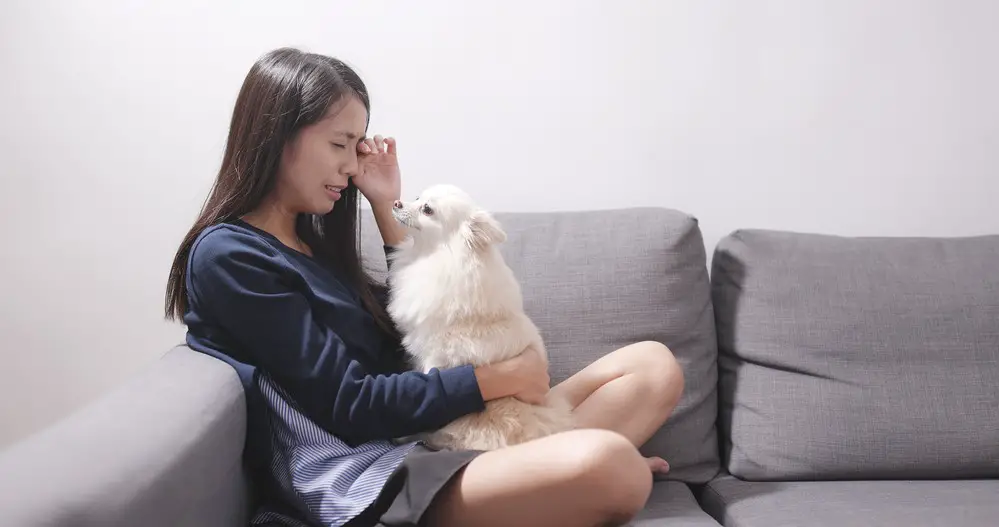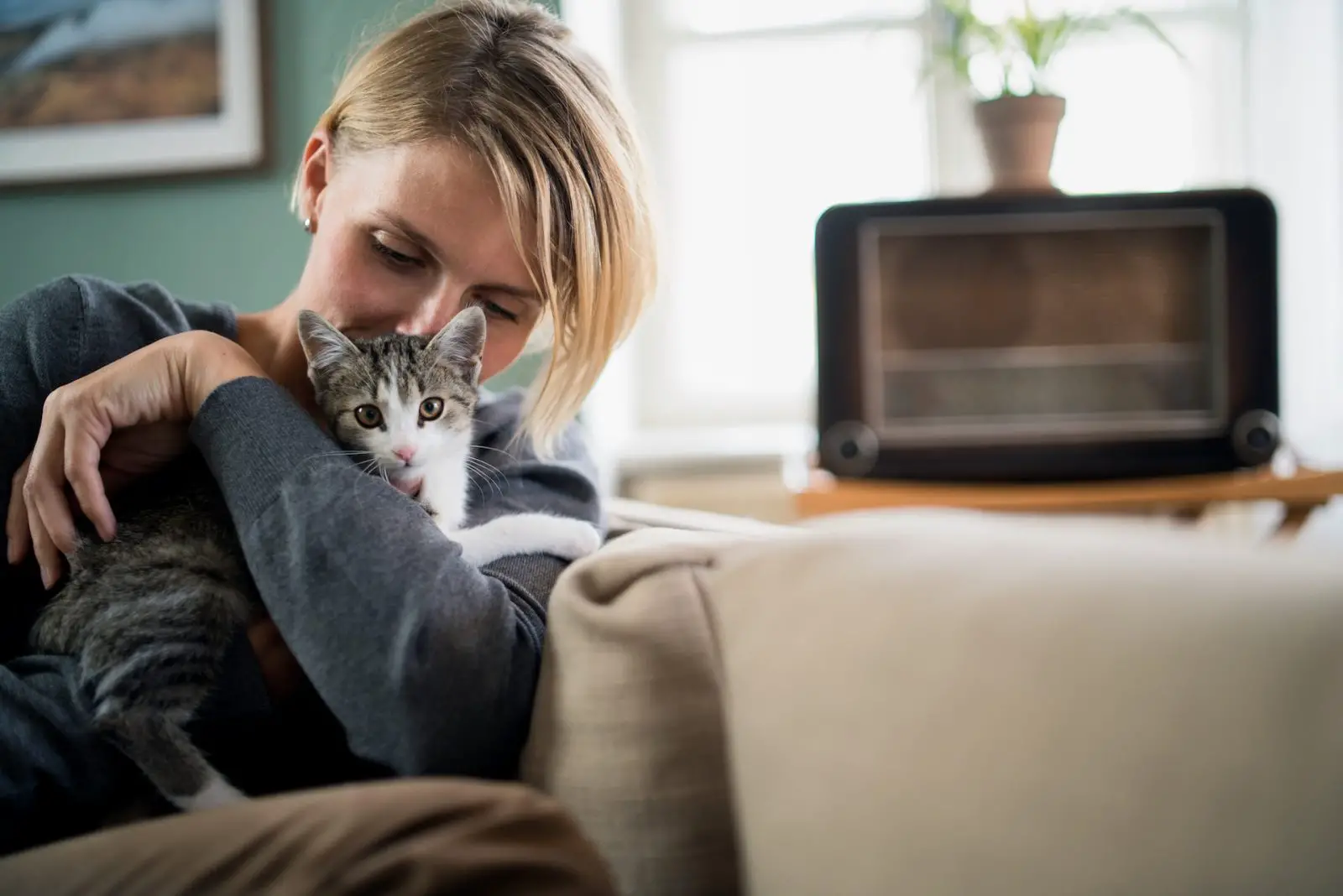Depression is a mental health condition that affects millions of people worldwide. It can be mentally and physically debilitating, making daily activities challenging. One potential remedy is the adoption of small pets as a form of therapy. These animals offer emotional support and companionship, providing an effective way to alleviate depression symptoms.
This article explores the world of small pets and how they can remarkably impact our mental health. From the well-known benefits of animal companionship to exploring different types of small pets, we will cover various aspects to help you decide which pet best fits your needs and lifestyle. Additionally, we will touch on the role of emotional support animals and therapy animals in supporting mental health and how they differ from each other.
Key Takeaways
- Small pets can provide emotional support and companionship for individuals with depression.
- Animal therapy options include emotional support animals, therapy animals, and choosing the right pet based on personality and lifestyle.
- Different types of pets, from fish and reptiles to unusual and exotic animals, should be considered for their specific benefits against depression.

Understanding Depression and How Small Pets Can Help
Depression is a common mental health issue that affects millions of people worldwide. It is characterized by sadness, hopelessness, and a loss of interest in daily activities. Anxiety and stress often go hand-in-hand with depression, exacerbating symptoms and impacting overall well-being.
Mental Health Benefits of Pet Ownership
Owning a small pet can benefit individuals struggling with depression, anxiety, and stress. One of the main advantages of having a pet is their companionship, which can help alleviate feelings of loneliness and isolation.
Spending time with pets can also lead to increased production of oxytocin, commonly called the “love hormone.” This hormone plays a crucial role in regulating emotional well-being, and its release has been shown to help reduce symptoms of depression and anxiety.
Here are some key benefits of owning a small pet for mental health:
- Companionship: Pets provide consistent and nonjudgmental companionship, which can be crucial for those suffering from depression and loneliness.
- Reduced stress and anxiety: Interacting with pets has lowered cortisol levels, a hormone associated with stress and anxiety.
- Physical touch: Physical contact with pets, such as stroking or petting, can alleviate sadness and promote a sense of happiness.
- Sense of purpose: Caring for a pet can foster a sense of purpose, which is often lost during depressive episodes.
- Lower blood pressure: Spending time with pets has been shown to lower blood pressure, promoting overall well-being.
In conclusion, the mental health benefits of pet ownership should not be underestimated. Owning a small pet can promote happiness and well-being and provide valuable aid in combatting depression, anxiety, and stress.

Top Small Pets for Combating Depression
Cats and Their Comforting Presence
Cats are often seen as great companions for people dealing with depression. Their calming presence and affectionate nature can help to ease feelings of loneliness and sadness. Additionally, their low-maintenance care requirements make them an ideal choice for those struggling with daily tasks due to their mental health.
Dogs Offer Unconditional Love and Emotional Support
Dogs are widely known for their unconditional love and emotional support. They can sense their owner’s emotions and often provide comfort and companionship. Their loyalty and ability to bond with humans make them excellent emotional support animals for those with depression.
Birds: Intelligent and Affectionate Companions
Birds can be intelligent and affectionate companions that offer unique emotional support to their owners. Their ability to mimic speech and interact with humans can help create a strong bond, reducing feelings of isolation. Birds such as parrots and cockatiels are known for their sociability and affection, providing emotional connection and support to their owners.
Rabbits and Guinea Pigs: Low-Maintenance Companions
Rabbits and guinea pigs are low-maintenance small pets that offer companionship and can help alleviate symptoms of depression. They are gentle animals that enjoy being held and often bond closely with their owners. Spending time with these animals can provide comfort and support for those with depression.
Rats and Gerbils for Emotional Connection
Rats and gerbils may not be the first animals that come to mind when considering emotional support, but they are surprisingly intelligent and affectionate companions. They are highly social creatures that can form strong bonds with their owners, providing a unique source of comfort and connection. Caring for rats or gerbils can offer a sense of purpose that can help combat feelings of depression.
Fish and Reptiles for Peace and Tranquility
Aquariums for Stress Reduction
Setting up an aquarium with fish can benefit those dealing with depression. Watching fish swim gracefully in a beautifully designed tank can promote relaxation and inner peace. Maintaining an aquarium provides a therapeutic activity and a distraction from daily stressors. Fish are also low-maintenance pets, which makes them suitable companions for those who cannot commit to more demanding animals.
Connection with Bearded Dragons
Bearded dragons are another excellent choice for those seeking tranquility in their lives. These friendly reptiles are known for their docile nature and ability to bond with their human caregivers. They enjoy being handled and can provide a sense of companionship and purpose, making them a fantastic therapy pet option for those struggling with depression.
Snakes and Lizards
Snakes and lizards are less conventional but equally soothing animal companions for people looking to alleviate symptoms of depression. Their calm and often predictable behavior can comfort those seeking stable companions. Their low-maintenance needs can also alleviate some responsibility-related stress while still offering a sense of accomplishment in caring for them.
Incorporating one of these reptiles into a therapeutic routine can positively impact mental well-being. Fish, bearded dragons, snakes, and lizards each possess unique characteristics that offer support and tranquility to those suffering from depression.

Special Considerations: Emotional Support Animals and Therapy Animals
Qualifying for Emotional Support Animals
Emotional support animals (ESAs) can provide comfort and support for individuals struggling with depression. To qualify for an ESA, a person must have a diagnosed mental health condition, such as depression, and a mental health professional must recommend the animal. Owning an ESA can help people manage their symptoms and improve their quality of life. However, it’s important to remember that pet ownership comes with responsibility, and potential ESA owners should consider the time and effort necessary to care for a pet.
Responsibility in caring for an ESA can positively impact an individual’s self-esteem. This sense of duty can foster a strong bond between the owner and the animal, contributing significantly to overall mental health support.
Therapy Animals for Mental Health Support
Therapy animals are another option for individuals seeking additional mental health support. Unlike ESAs, therapy animals are trained specifically to provide therapeutic assistance to people coping with mental health challenges, including depression and trauma.
Many therapy animals are dogs but can also be cats, rabbits, or horses. These animals participate in sessions with mental health professionals and help facilitate emotional healing through their calming presence and non-judgmental demeanor.
Therapy animals can be an excellent adjunct to traditional therapy, as their presence can make it easier for individuals to open up about their experiences and emotions. The connection with a therapy animal can also provide a nurturing environment, allowing people to process complex feelings about depression and trauma more effectively.
Choosing the Right Pet Based on Personality and Lifestyle
Independent vs. Social Small Pets
When considering a small pet for depression, it’s important to consider your personality and lifestyle. If you are independent and prefer a pet that can entertain itself, hamsters are an excellent choice. They are solitary animals, spending most of their time alone in their habitat. However, they still provide mental stimulation and require interaction for their well-being.
On the other hand, if you enjoy social interaction, you may benefit from choosing a small pet that thrives on companionship. Guinea pigs, for example, are social animals and fare better when housed with another guinea pig. They can help boost self-esteem and motivation by providing affection and engaging in playful behavior with their human caretakers.
Low Maintenance and Easy-to-Care-For Pets
It’s also essential to consider the level of maintenance required for a particular pet. Low-maintenance pets are great for those with busy schedules or who might struggle with maintaining a daily routine due to depression. For instance:
- Hamsters: They are relatively low maintenance, requiring clean housing, fresh food, and water. They do not need to be taken outside and can be left alone for extended periods without adverse effects.
- Betta fish: While not as interactive as other small animals, betta fish can provide a calming atmosphere and require minimal care. They only need a clean tank and regular feeding.
When choosing a pet for someone going through depression, consider their living situation, the presence of children, and their ability to commit to the necessary care. This will ensure that the pet can bring them comfort and support while being a manageable addition to their lives.
Unusual and Exotic Small Pets
Ferrets: Playful and Curious Creatures
Ferrets are small, cuddly pets known for their playful and curious nature. They are carnivorous mammals that typically have 5 to 10 years of life. Ferrets are relatively easy to care for if you provide a clean environment, a balanced diet, and enough attention. Ferrets are good at entertaining themselves and are known for their amusing antics.
While they are not the most inexpensive pets to own, ferrets make up for this with their engaging personalities. Their high-energy, friendly demeanor can be great for lifting spirits and providing companionship for individuals with depression.
Sugar Gliders: Small and Sociable Pets
Sugar gliders are another unusual and exotic small pet that can positively impact someone’s mental health. With their friendly and sociable nature, sugar gliders can form strong bonds with their owners. They are small marsupials from the same family as kangaroos and koalas.
Sugar gliders require a specialized diet, making them more challenging to care for than other small pets. However, they are relatively inexpensive to maintain once settled in a proper habitat. They are nocturnal animals, so you’ll want to ensure they have enough space and environmental enrichment to stay active during the night.
Caring for sugar gliders can be rewarding and therapeutic for someone coping with depression. Their cute, wide-eyed appearance and gentle nature make them popular pets for those seeking comfort and companionship from a cuddly animal.
Conclusion
Small pets can significantly impact an individual’s mental well-being, offering numerous benefits such as companionship, emotional support, and opportunities for social interaction. In cases of depression, these pets can provide a source of comfort and bonding, helping to alleviate feelings of loneliness and sadness.
Small pets offer various advantages, so choosing the right one depends on the person’s preferences and circumstances. For example, some pets, such as fish or hamsters, require minimal maintenance and space, while others may need more attention and engagement, like guinea pigs or rabbits.
Selecting the right pet can enhance one’s emotional well-being and foster a strong bond between the owner and their animal companion. Ultimately, the choice requires careful consideration of various factors, including the individual’s living situation, personal preferences, and the amount of care and interaction each pet requires.
In conclusion, small pets can be wonderful sources of emotional support and companionship for those dealing with depression, providing a comforting presence and opportunities for social interaction while promoting overall mental well-being.
Frequently Asked Questions
What are the top small animals for mental health support?
Several small animals can provide mental health support. Some popular options include guinea pigs, rabbits, and birds. These animals are known for their calming presence and ability to provide companionship.
Which pets are most effective for combating loneliness?
Pets like guinea pigs, rabbits, and birds can help combat loneliness by providing companionship and interaction. They are social creatures, making them great friends for those struggling with loneliness.
How do small pets assist with anxiety relief?
Small pets can assist with anxiety relief through their presence and simple interactions. Stroking or spending time with a pet can lead to a sense of calmness and reduced stress levels. Additionally, the routine of caring for these animals can bring structure and purpose to one’s day, contributing to anxiety relief.
Which emotional support animals are best for depressive individuals?
The best emotional support animal for a depressive individual depends on their preferences and living situation. Common choices include dogs, cats, rabbits, guinea pigs, and birds. Each animal has unique benefits, so it’s crucial to consider individual needs and lifestyles when selecting an emotional support animal.
What factors make a small pet suitable for anxiety and depression?
A small pet suitable for anxiety and depression should be low maintenance, friendly, and responsive to human interaction. These characteristics foster a bond between the pet and the owner, providing comfort and companionship to those struggling with mental health issues.
How do cats and dogs compare when it comes to providing emotional support?
Both cats and dogs can provide emotional support but differ in their care requirements and interaction styles. Cats are more independent and require less hands-on care, while dogs need more attention, daily exercise, and training. Ultimately, the choice between a cat or a dog depends on individual preferences and a person’s ability to provide care and companionship for their pet.
- Stress Relieving Benefits of Spending Time in a Garden: Interesting Facts to Know - February 16, 2024
- How to Reduce Anxiety Immediately: Quick and Effective Techniques - February 15, 2024
- Can Stress Cause Bloating? Understanding The Link Between Stress And Digestive Issues - February 15, 2024
This site contains affiliate links to products. We will receive a commission for purchases made through these links.




